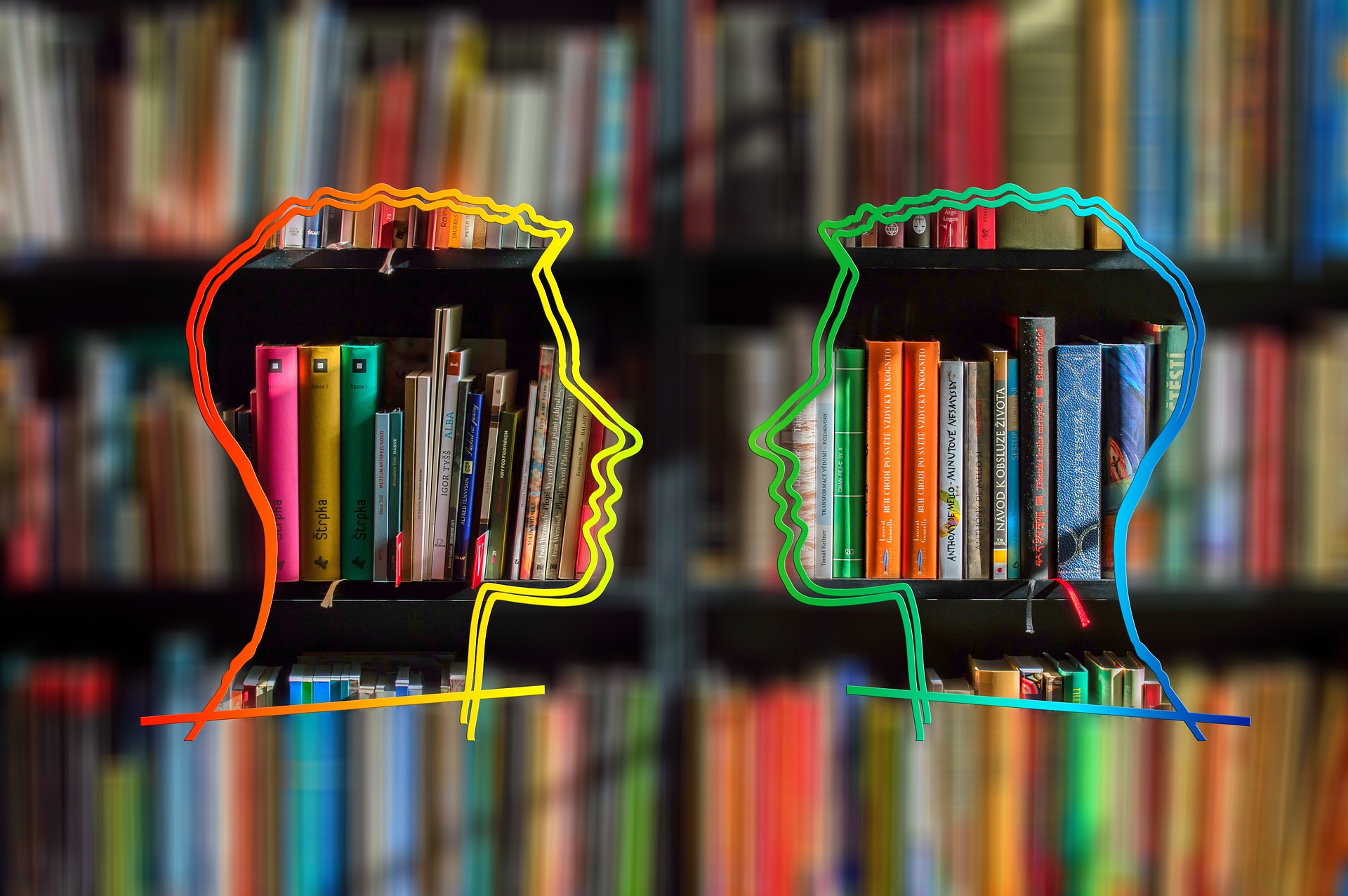
by Gabino Iglesias
I hate talking to dumb people, so I usually pay attention to what folks around me say and then talk to the smart ones. I met Violet LeVoit at BizarroCon last year, and she was a few notches above smart. Then we talked movies and, just as the conversation was moving to books, I had to run and get on a plane. That sucked. When I first discussed with Bizarro Central editor Constance Ann Fitzgerald which authors we both would love to see in Show Me Your Shelves, Violet was at the top of the list. And then it happened. Needless to say, it was fucking fantastic and as awesome as digital conversations get. Oh, and she sent a bunch of cool pictures to boot. Enjoy!
Who are you and what role do books play in your life?
Hey, I’m Violet LeVoit (rhymes with mmmwah!) and I am a compulsive reader. I think books are just about the greatest thing ever and I became an author because I wanted to have part of my soul in books forever.
If you ever get a chance to come to Philadelphia where I live, there’s this great museum called the Mutter Museum that’s full of medical oddities. And mixed in with all the skulls and the two-headed babies in jars they’ve got a collection of books bound in human skin. So I’ve started making plans for a posthumous collection of my books bound in my skin that I’d like to donate to a library, maybe the Enoch Pratt Library in Baltimore, which is where I’m from originally and which has an amazing rare books collection. I’m still looking for a taxidermist/bookbinder who can do the job, but I guess I can get the IBSN numbers tattooed on me now.
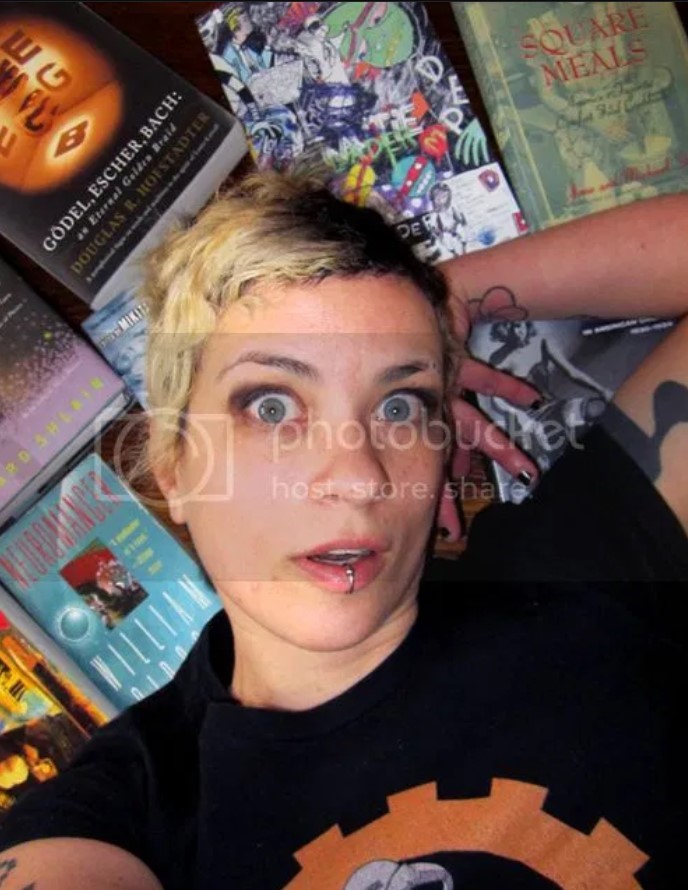
You read books and write them. You also write about films. Where do they intersect? Do movies take time away from reading and writing? What’s the role of the film critic today? (Okay, that was more than one question, but there are no rules here).
So my childhood was interesting in that my father is a tremendous film buff, and would do things like borrow 16mm prints of Chaplin and Laurel & Hardy movies from Enoch Pratt Library (I told you that place was awesome) and set up a projector in the living room and that would be the great treat on a Saturday.
But my parents were also very conservative when it came to media, and really went above and beyond in protecting me and my sisters from stuff they felt was inappropriate — like, when I was a kid I wasn’t allowed to watch Warner Brothers cartoons because all those anvils dropping out of the sky were too violent. So I had this tremendous hunger to learn more about movies but was forbidden to watch 99% of them, even into adolescence.
So instead, I read about them, especially Roger Ebert’s multiple compendiums of movie reviews, which became a holy text to me. He was the writer who got me interested in the places a non-fiction essay could go, beyond the five-paragraph structure they teach in high school English, and when he explained so eloquently about not only what movies were good but why they were good? That really got the gears turning in my own head about how to think about movies as more than just entertainment.
There’s this adage that “you can only see a movie for the first time once,” that where and how and also, who you are, at that moment, permanently shapes all later viewings. So for me, the first time I encountered all the great movies, all the Taxi Drivers and Citizen Kanes, was as text. They were writing first, not images. And I carried around this film festival inside my head of what I imagined these movies to be like. So that was really the first time I started doing the things a novelist needs to do — to imagine a world, and all the characters in it, and how they look and what they do, and to understand how their story moves from beginning to end.
So for me, there is no difference between writing about movies and writing my fiction. It’s the difference between describing my own dreams, versus describing someone else’s dreams. Films are just dreaming in public, anyway.
These days, everyone’s a film critic, which is good and bad, because it might have been nice to have a steady, cushy film critic job on staff at a newspaper, but those days are long gone. But on the other hand there are so many more voices and perspectives in film criticism now, especially on the blog/amateur level. I still think it’s nuts that I’m one of comparatively very few women writing professionally about film. If you scan the bylines on any film site, it’s still very much a man’s game. That doesn’t make any sense to me, since I know many female writers and many women who love movies, and it just seems there would be more overlap between the two, especially when you’ve got a tremendous voice like Pauline Kael setting a precedent in the field. I very rarely meet other female film writers, and I don’t know why that is, and if there’s anything I can do to change that, I’d be happy to do it.
But you asked about the role of the film critic, and I think it’s the same as any critic: steer you away from the truly awful, and illuminate what’s radiant about the good. The dirty secret about criticism is that it’s easier to write about why something is terrible than it is to explain why it’s wonderful. Savaging junk makes it easier to meet your deadline, and you can make your review funnier and more quotable, but it’s not your highest calling. Critics at their best are thought-provokers. If they can point something out to you, or help you see why something is new and exciting, then you grow and they grow. Being an arbiter of taste or, worse, a fussy crank, makes you an enemy of art. I’m a friend of art.
Reading, writing, and watching movies only take time away from each other when I’m on simultaneous deadlines. It’s washing dishes that takes time away from all of them. I hate washing dishes.
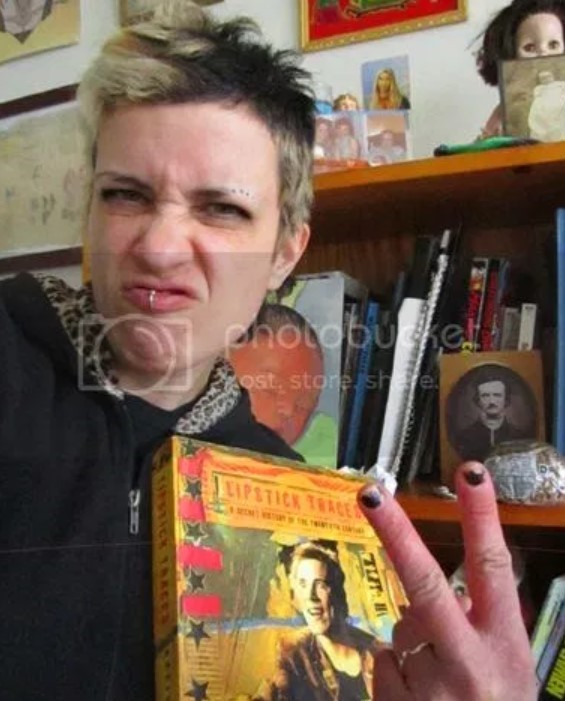
What are some of your favorite books and why?
I thought you’d never ask. One thing: I’m the opposite of a hoarder. I’m a compulsive thrower-outer. (Or give-awayer.) So if I keep a book, I really love it. And all the books below are books that are currently and permanently on my bookshelf.
William Poundstone is one of my favorite polymathic science writers. He’s written other great books about logic, paradox, and the secret questions they ask you in job interviews at Google, but my favorite are his Big Secrets series, exposing backwards messages in songs, how to cheat at blackjack and Rorschach tests, pornographic movies starring Barbra Streisand, and what eleven herbs and spices are really in KFC Chicken. (hint: MSG is apparently an herb.)
Car Crash Culture. This book is so nuts. It’s a cultural exploration of car crashes, and I’d love it even if it wasn’t edited by my friend Mikita Brottman. There’s essays about J.G. Ballard, Princess Diana, those gory car crash movies they’d make you watch in driver’s ed, all mixed in with case histories — and whoa-nelly photos — of car crashes. (If you ever thought it might be a good idea to get your hoo-haas by chaining yourself naked to a Volkswagen Beetle doing donuts in low gear, autopsy photos in this book will dissuade you.)
Neuromancer. Of course.
I’ve got a good group of art books, including a history of Tijuana Bibles, exhibition catalogs of favorite painters Gerhard Richter and Tamara De Lempicka, as well as a great collection of film noir posters (The Art Of Noir, Eddie Muller), but I’m especially fond of this collection of Chinese propaganda posters (Pepin Press). Do you have a book with a spaceman toddler delivering a bouquet to a rabbit on the cover? (In going through my bookshelf to write this article I discover I’ve saved a diagram of the female reproductive tract in Chinese as a bookmark in my propaganda poster book. Just thought I’d share.)
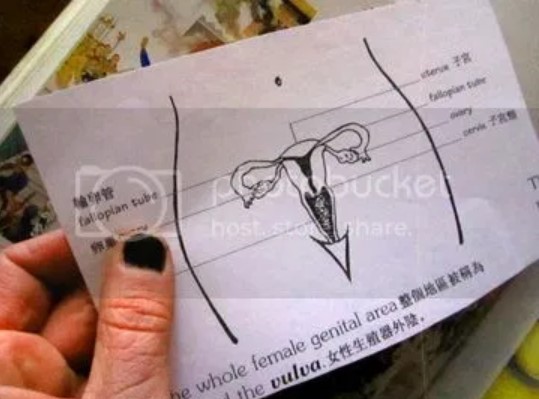
When I was at home recovering from my horrific labor, my dad gave me a copy of Neil Steinberg’s Complete And Utter Failure to read. It was the first thing that made a dent in my feelings of worthlessness and self-loathing after failing to birth a baby. Steinberg writes about the ritualized humiliation of spelling bees, misguided supermarket products (Colgate brand frozen dinners??), and all the people who died on the way up Mount Everest, in such a witty and observant way that I realized failure is just a normal part of life, not grounds for suicide.
John Waters is practically a secular saint in Baltimore, where I’m from, and Crackpot contains one of the greatest essays I’ve ever read, “Hatchet Piece,” an imaginary day-in-the-life where he encounters 101 things he hates in quick succession. (I don’t own it, but Waters’ other book Role Models is another must-read.)
I got turned on to The Alphabet Versus the Goddess via my friend Francis Tsai. (Side note: Francis is a conceptual illustrator who, after getting paralyzed from Lou Gehrig’s disease, is now drawing with his eyes. For realz. Check out his blog, he’s got T-shirts for sale, you want one.) The theory behind this book is a little cuckoo, so stay with me: reading, because it’s linear and symbolic, requires lots of left-brain activity. When everyone in a society is using their left brains more than the right, they start to value the logical and linear more than the emotional and creative. In short: when cultures get alphabets, their gods turn male and women get hosed. Sounds crazy, and then Leonard Shlain goes on to cite examples in culture after ancient culture where it happened. It’ll change the way you think about literacy and writing forever.
Jane and Michael Stern are two of my favorite pop culture writers of all time. I’ve probably read Square Meals more than I have any book ever. It’s sort of a recipe book, but it’s more a cultural history about how Americans ate between 1920 and 1950, with five vanished cuisines: lady’s tearoom luncheons, WWII rationing meals, “nursery” cuisine of toasts and puddings (what kids ate before chicken fingers were invented), TV suburbia cuisine, and Sunday dinner. Any of the other many, many books written by them about food and American culture is worth reading too.
I’ve got lots of fun books about film (Harry and Michael Medved’s The Golden Turkey Awards, about bad movies, and The Hollywood Hall Of Shame, about bad expensive movies, are two favorites) but I love Danny Peary’s three volumes about Cult Movies. Come on, Danny, write another one!
Lipstick Traces is rock journalist Greil Marcus’s theory that punk rock is a direct descendent of Dada, written in crazy, meandering, Dadaesque prose. This book is also totally nuts. (Do you sense a theme?) Even though he’s on the cover, John Lydon says this book is total bollocks. He’s John Lydon, it’s his job to hate everything. Don’t listen to him. Read this book.
Godel Escher Bach is my favorite book I haven’t completed and don’t understand. Whenever I think I’m smart I pick this up and remember that compared to some people (like Douglas Hofstadter) I am actually borderline brain damaged. But it is still one of my favorites. I don’t think I will ever understand his theory about how comparing the work of mathematician Godel, artist Escher, and musician Bach, will reveal how animate life arises from inanimate matter (which I think is his point?) but I keep trying.
Finally, I’d just like to point out that in 1981 I won the prize for reading the most books in my kindergarten class and won a instructor’s edition of Science Is Learning that was probably laying around in some closet for a decade before they decided to give it to me because I like science, but who cares because I am still the best reader. I’m gonna confess that I gamed the contest a little by purposely reading lots of very easy books rather than stuff legitimately on my reading level (which was actually up to 3rd or 4th grade level by the time I was 6), but so what and I have no regrets. YOLO!
We had breakfast together after you scared some folks in a hotel (that’s the way I remember it). You mentioned I Am Genghis Cum being sort of a cleansing/cathartic experience for you. Tell me more about where the book came from and what it means to you.
You remember that, right? That was crazy! I have to tell the hotel story first. So what happened was — okay, if you look at the pictures of me you can see that half of one of my eyebrows is tattooed on. It’s just a series of dots. So I’m checking out of the hotel in Portland, and the desk clerk, who I haven’t seen before, looks at me and her mouth drops open. And she says “Oh my god. A week ago, we had this meth head stagger in here at ten p.m., he was totally freaking out, I don’t even know how this guy was still standing, he was so high. And he kept yelling “She’s here! She’s here! I know you’re keeping her here! She’s got the box with the key for the end of the world! She’s got five dots over her eye! You can’t miss her!” And they called the police and threw him out, and just thought he was nuts . . . and then a week later I show up with my dots. So meth makes you psychic, apparently.
So all of that is a much more fun story than the story behind I Am Genghis Cum, which is this: I was in labor for 90 hours. Which when I say it, people’s jaws drop, and they think they heard me say nineteen hours?, and I say no, ninety, nine-zero 90. And the story behind that is that I was trying for a homebirth, and I had this quack of a midwife who kept saying no, no, you’re fine, this is part of the process, and finally after being in labor for 3 days I went to the hospital and had a C-section.
And then afterwards the real ordeal started. I had flashbacks, and panic attacks, and gaps in my memory, and weird hypervigilance, believing the walls might fall down on my son if I don’t keep an eye on him, that kind of thing. The birthing class had a reunion “get to see everyone’s baby” party and I ended up screaming at all the new moms “I hope you’re all thrilled with what your bodies can do because death is going to take that away from you.” And then I had a nervous breakdown and had to move back in with my parents. And thank god at that point a real OB/GYN intervened and said “I think you have PTSD.”
And apparently PTSD from bad birth experiences is more common than is talked about, because there’s this cultural myth that “women have been having babies for centuries and they’ve all been fine”. But a lot of them are not fine. And to pretend that you’re fine, while recovering from surgery, while sleepless with a newborn, is really too much. Because think about it, let’s say you were in terrible fear and pain and at risk of dying and you didn’t sleep for 3 days and then when you got out someone gave you a baby to take care of. You really wouldn’t be at your best either.
So while I’m knitting my life together at my parent’s house, people are telling me “Ooh, you’re a writer, you should write about what happened to you, it would be therapeutic.” But some shit is not as easy to remedy as a journal entry and a cup of herbal tea. So all the stories in I Am Genghis Cum — although at the time I didn’t realize it — are about a nightmare vision of human reproduction. They’re all about people trying to negotiate the horrendous sacrifice pregnancy and parenthood and creating a life entails, and they all fail and they’re all permanently maimed or dead in the end. Every one of them.
So the irony is, enduring that horrible experience made me brave enough to go to very dark places in print, which as it turns out is where my power was as a writer. My super dear friend Katy Otto, who is an amazing musician with the Philly band Trophy Wife, she has this concept of the “grace fracture,” which is when a doctor purposely re-breaks a bone so it can heal right. So I Am Genghis Cum is my grace fracture book.
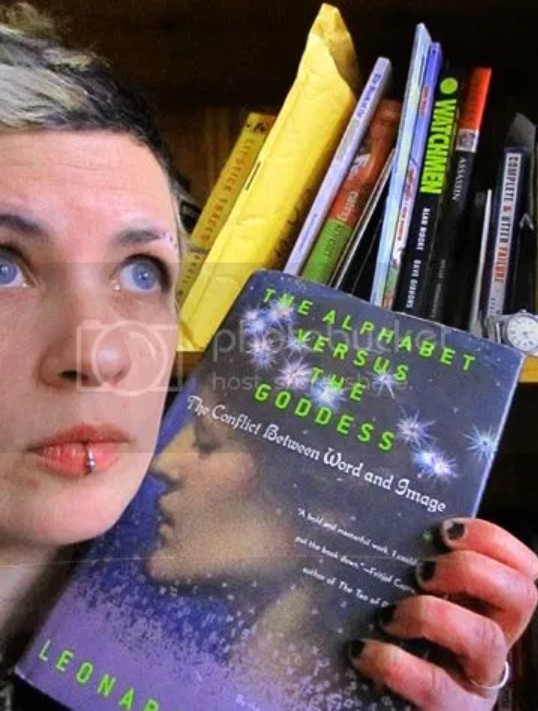
What are you working on now? What can we run out (or click on really fast) and buy today?
So many things upcoming. I’m finishing up my MFA in Creative Writing and I’ve got a novel as my thesis. I’ve got another book of short stories with Fungasm in the works. I’ve got a graphic novel with gonzo illustrator Greg Houston that it’s criminal I haven’t finished yet. Plus I still have a regular gig writing with Turner Classic Movies and other film blogs.
If you can’t wait for all that (and I can barely wait), stuff you can buy now: of course I Am Genghis Cum, but I also have stories in several other bizarro collections, like Walrus Tales and In Heaven Everything Is Fine. I also got to be a part of John Skipp’s awesome horror theme collections for Black Dog and Leventhal. I’m in the Demons, Psychos, and Werewolves and Shapeshifters volumes, and that one has my story “Warm, In Your Coat” about bulimic lesbian werewolves that everyone seems to like. I also wrote an erotic e-book (under my old name Violet Glaze) called Hotel Butterfly. (It’s not bizarre, just kinky and Japanese, but I repeat myself.)
For my film writing, I was a contributor for this really great collection called Defining Moments In Movies — the idea was to encapsulate unforgettable moments from movies in these little haiku-like 200 word pieces. I loved it because I got to write about my favorites — Tron, Persona, The Misfits, Videodrome — but really, every contributor to that book is really on the ball, it’s great if you have any interest or curiosity in film.
And if you really can’t wait, whenever I go to a library, I stick free copies of my chapbook love poems/hate poems into books on the shelf. So who knows, visit your library, you might get lucky.
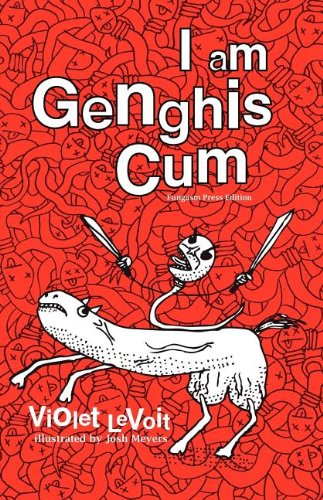
This post may contain affiliate links. Further details, including how this supports the bizarro community, may be found on our disclosure page.

